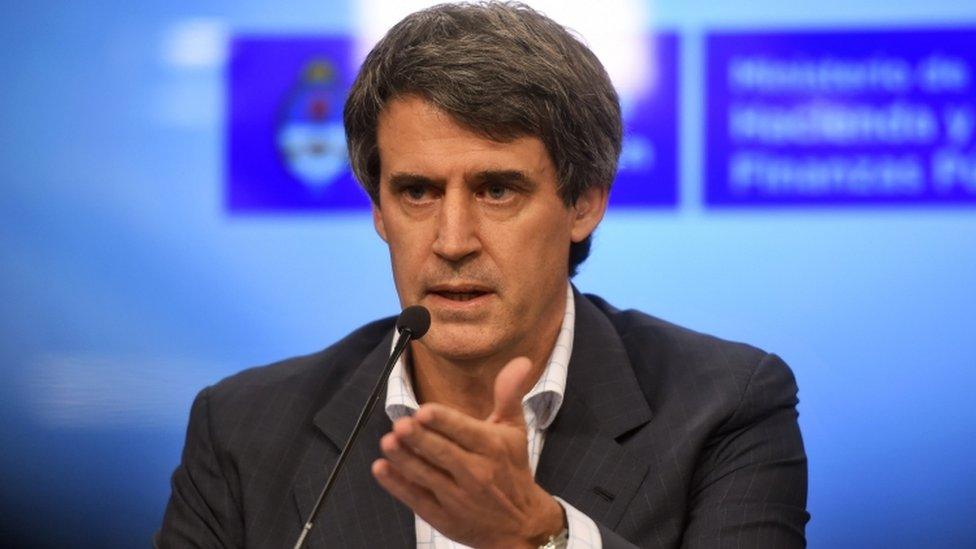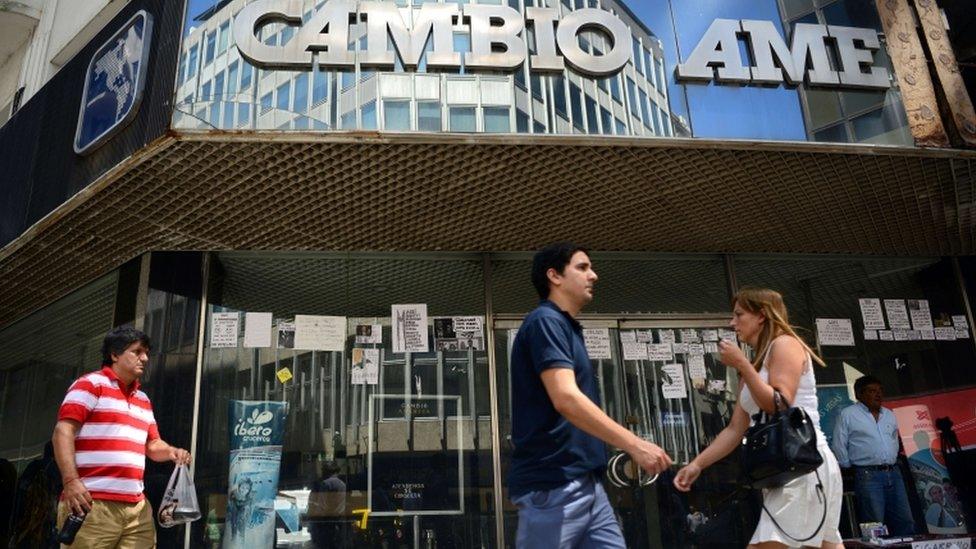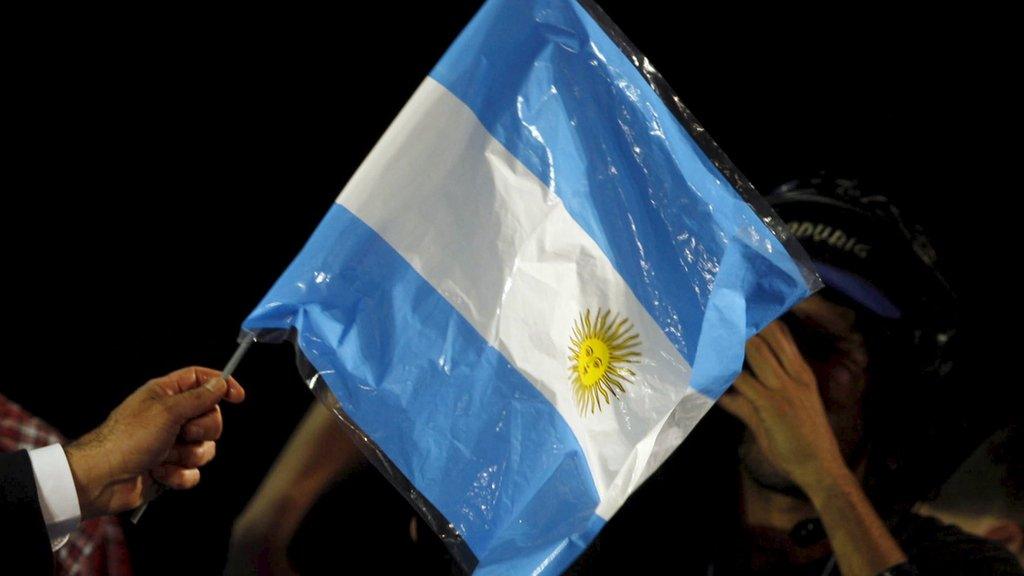Argentina to relax foreign exchange controls
- Published

Argentine Finance Minister Alfonso Prat-Gay said he would eliminate the foreign exchange restrictions that have propped up the peso since 2011
Argentina has announced it will lift its currency controls, which were imposed four years ago to prop up the peso.
The move is expected to lead to a sharp devaluation of the currency.
President Mauricio Macri hopes it will boost exports and spark economic growth.
But consumers fear it could further drive up Argentina's already high inflation rate,
Some retailers also expressed concern that shoppers would be cautious in the short term as they see their purchasing power reduced.
Argentina has been plagued by financial volatility in recent decades with inflation running at around 25% according to private estimates.
The central bank's currency reserves have been depleted after the previous leader, Cristina Fernandez de Kirchner, used them to prop up the peso.
With reserves running low and many Argentines turning to the black market to get dollars, Mr Macri promised to change that policy as soon as he took office.
He was sworn in last week.
Market watch
The peso will be allowed to float when markets open on Thursday.

Eliminating the foreign exchange restrictions may set up a potentially painful devaluation
Analysts predict a fall of up to 30% from the current controlled rate of 9.8 pesos to the dollar.
They say they expect it could fall to 14.5 pesos to the dollar, the rate at which the currency has been trading on the black market.

Analysis: BBC's Ignacio de los Reyes in Buenos Aires
The Argentine economy is so dependent on US dollars that grandmothers give their grandchildren 10-dollar bills as birthday presents and adults hoard them under the mattresses. So that is why in dollar-addicted Argentina, the end of the "cepo" or exchange controls was anxiously expected.
The government of Cristina Fernandez de Kirchner tried to end the buying of dollars four years ago, but prohibition simply fuelled the black economy.
Since then, a legion of informal street sellers in Buenos Aires' main thoroughfare, Paseo Florida, offer foreign currency at much higher rates than the official one which is extremely hard to buy legally.
Argentines also found other creative ways to circumvent restrictions, from organised day-trips to neighbouring Uruguay to get US dollars from cash machines to Bitcoin trading.
The new policy may satisfy middle and upper-class Argentines who will now be able to get their dollars freely.
But they are also fearful of the consequences: higher prices and a potential devaluation of their currency.

Argentine Finance Minister Alfonso Prat-Gay said he accepted the rate would weaken to "close to" 14.2 to the dollar.
He said the central bank had been given the right to intervene if the exchange rate fell too quickly.
But he was adamant that change was needed: "The old system had killed the goose that laid the golden egg" by restricting the growth of the economy.
He outlined that exchange controls would end for all businesses who would be allowed to buy as many dollars as they needed.
But he said, for the time being, ordinary Argentines would still face restrictions on the amount of dollars they could buy a month.
- Published14 December 2015

- Published24 November 2015
- Published20 November 2015
